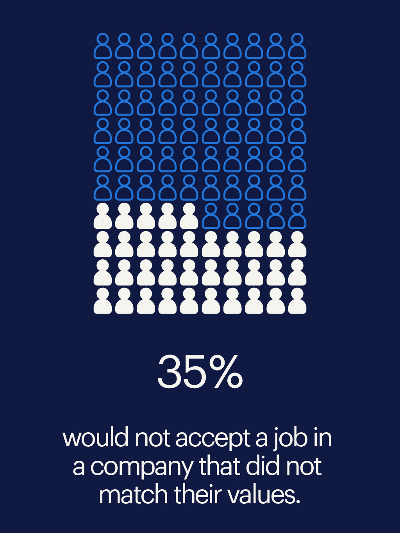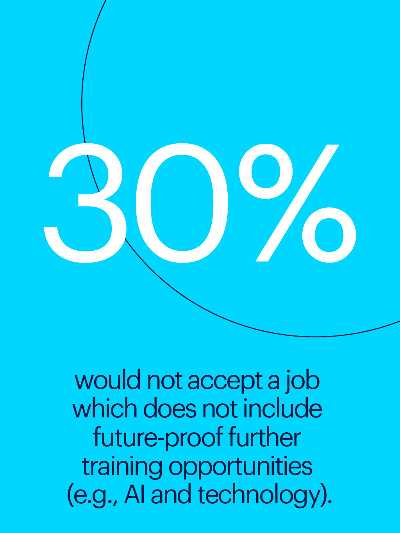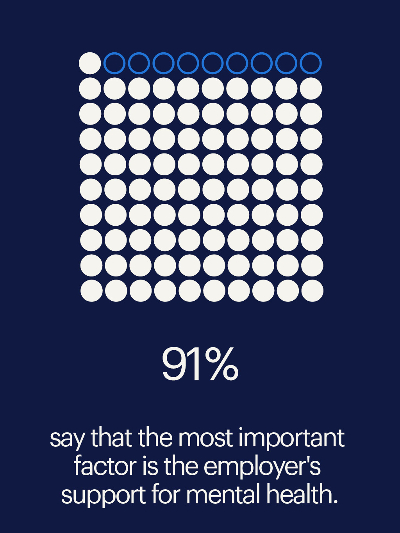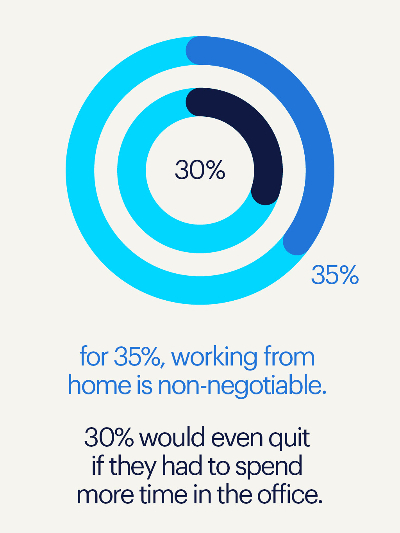this will be on workers' minds in 2024
-
equality & understanding
employees support the same values
Equality and diversity play an increasingly important role in one's choice of employer. 35% of the Swiss employees who responded would not accept a job at a company that did not match their values.
A sense of belonging is increasingly important to all generations. Currently, however, 50% of the respondents feel that they cannot fully be themselves at work, and must hide aspects of their personality. In Generation Z, 32% feel misunderstood by their employer, compared to 29% of Millennials.
When it comes to the values of equality, diversity, sustainability and career development, employees see the company as having a duty; they see motivation and mental health as being their own responsibility. 60% of the employees feel connected to their employer.
-
motivation & ambition
satisfaction with one's current position
The trend of putting private life above work will continue in 2024: 55% of respondents say that their private life is more important to them than their job. This also affects ambition and motivation when it comes to professional advancement.
Almost half (47%) of the Swiss respondents are happy in their careers given where they currently are. Only 35% see a leadership position as being for them, and only 41% would like to work in a full-time position in the future.
Millennials consider themselves more ambitious than other generations, closely followed by Gen Z. And yet soft factors remain more important than career opportunities: the most important factor when thinking of the current or future employer is how much support is offered in terms of mental health (91%). Just over half (54%) of employees see themselves as having a responsibility in that direction.
-
AI & skilling
training in AI and skills development are non-negotiable
Further training opportunities are a must, even if ambitions are declining: 30% would reject a job in which there is no opportunity to acquire new knowledge that they can use in the future. 26% would even quit if they were not offered further training in, for example, artificial intelligence.
AI and tech play an essential role in this and are non-negotiable parts of the job for employees. When it comes to new knowledge, the only more important factor is training in the field of well-being and mindfulness, according to 31% of the respondents, followed by IT skills at 27% and communication and presentation training at 24%.
-
flexibility
companies need to think again
The working-from-home debate will continue in 2024. A quarter of the companies have become stricter in the last 6 months and increasingly required their employees to come back into the office. 28% expect more presence in the office.
This conflicts with changed private circumstances such as changes of residence or new pets. For at least 19% of the respondents, their living conditions have changed accordingly. 30% of the Swiss respondents are willing to quit if they are obliged to spend more time in the office. For 35% of respondents, having the option of working from home is non-negotiable.
Flexibility is not only relevant for one's workplace, but also to one's working hours. Employees want individual solutions that go beyond flexitime and working from home. Companies will have to think in more detail about flexibility in the future if they want to remain attractive.









